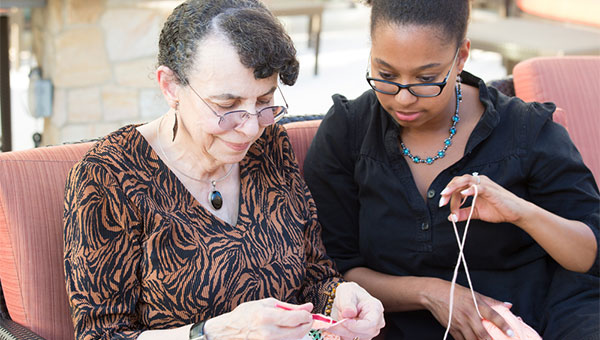A cancer diagnosis doesn’t just happen to the patients. The family and friends of that patient are also greatly affected by the diagnosis, treatment, and remission stages of cancer. Caregiver is defined as the person who most often helps the patient and is not paid to do so. Most commonly, the caregiver is a spouse, partner, parent or adult child.
Caregivers can provide a variety of different support including emotional, help with medical care and assisting with financial issues. Caregiving shouldn’t be just one person all the time. A supportive team of family members, friends and the health care team can offer different skills and strengths to provide effective care. Caregivers should be:
- Proactive
- Problem solvers
- Have a positive attitude
- Organized
- Good communicators
- An advocate
Being a caregiver to someone going through cancer treatment can be very demanding. It’s not uncommon for caregivers to feel tired, having trouble sleeping or increased stress levels. Caregivers should take proper steps to take care of themselves so they can continue to care for those they love. This would include:
- Seek support from family and friends
- Exercise regularly
- Eat healthy
- Taking recreational/social time
- If necessary, get help from trained mental health professional
As a caregiver, you have an important and unique role in helping your loved one through their cancer experience.
BayCare also offers a variety of classes and support groups for caregivers. Sign up today at BayCareEvents.org.




